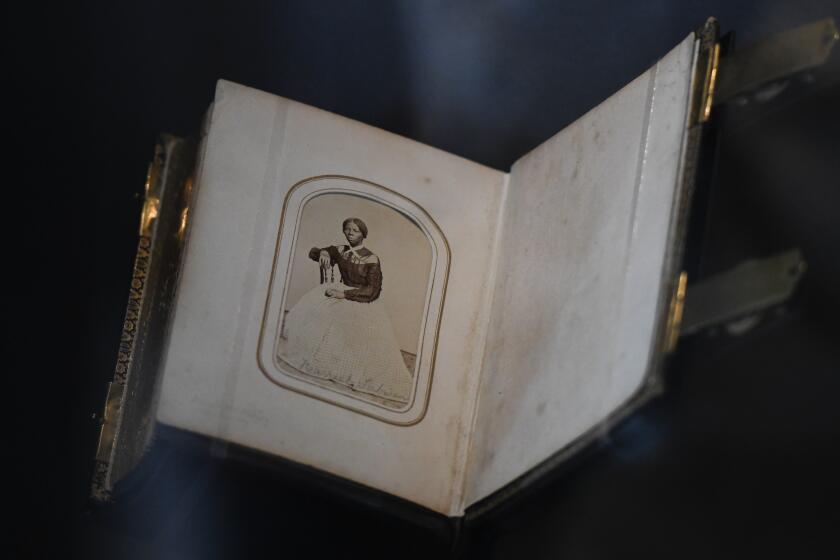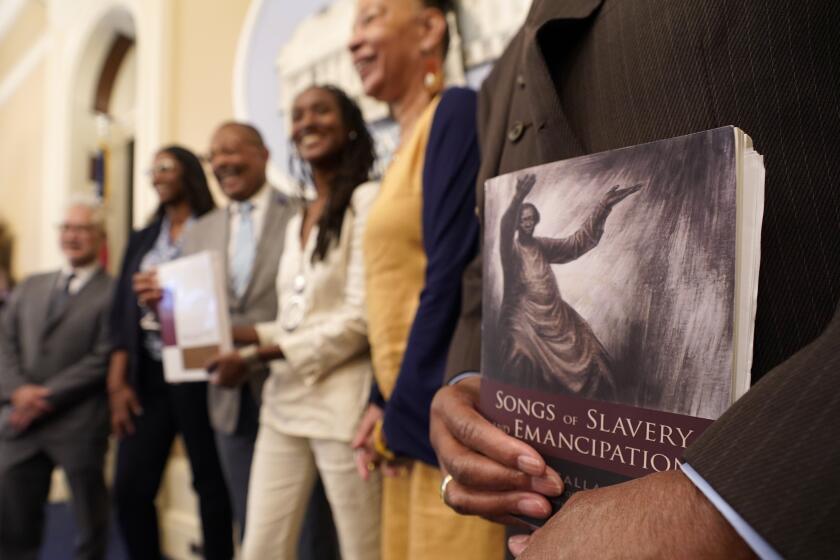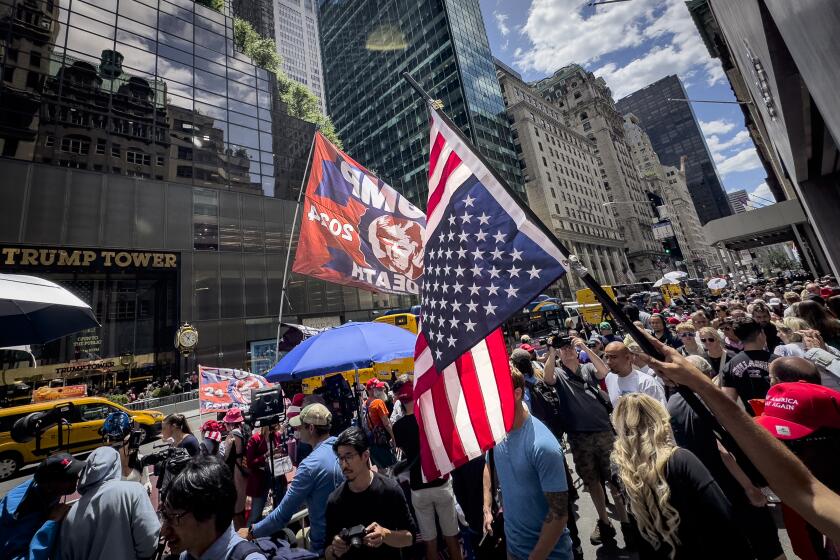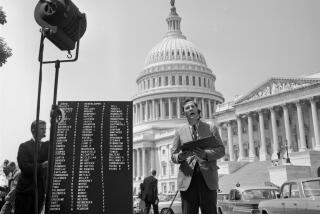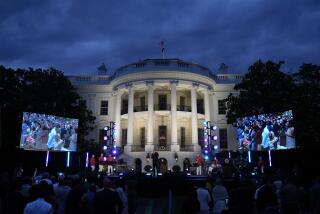Editorial: Juneteenth isn’t a holiday just for Black people. Everyone should celebrate freedom
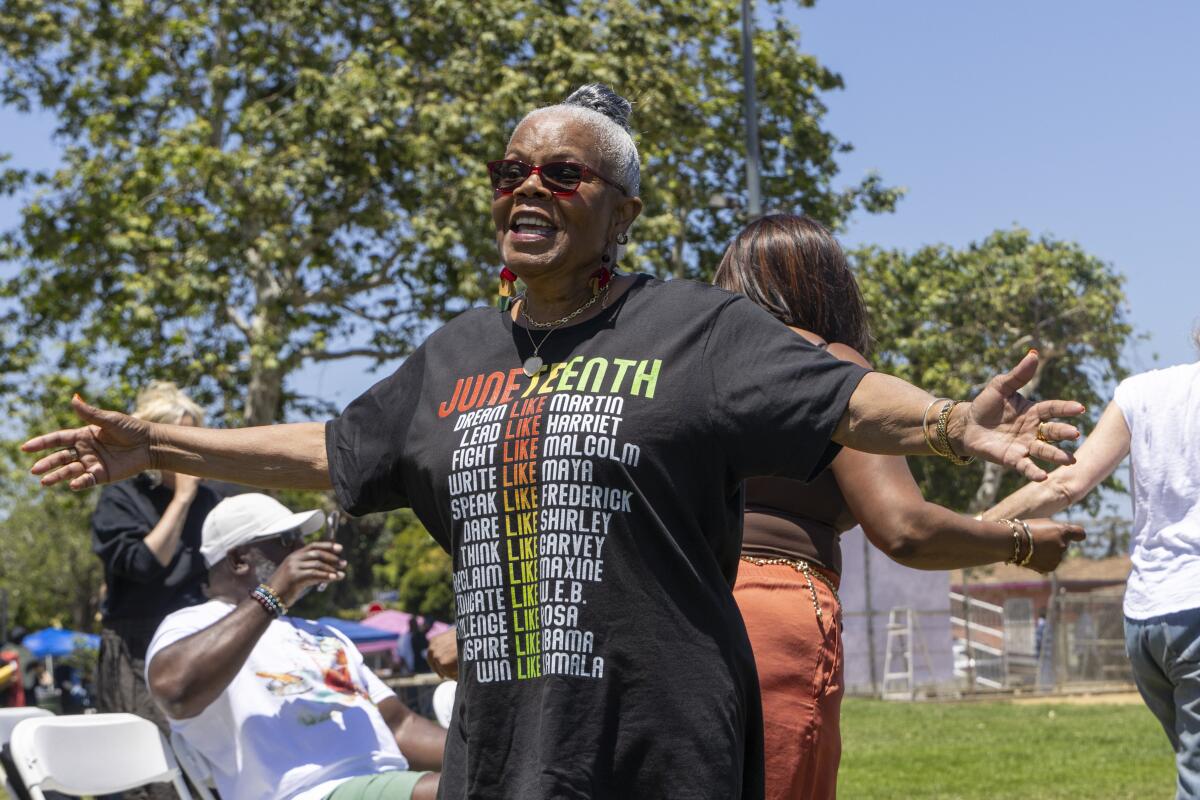
- Share via
Juneteenth is no more a holiday just for Black people than the Fourth of July is a holiday just for white people. It recognizes and celebrates a profound milestone in American history — the declaration of freedom for an entire race of American people who had been held in bondage for centuries.
Although the day itself, June 19, 1865, was far less life-changing than it should have been.
Juneteenth commemorates the arrival of Union Army Major Gen. Gordon Granger in Galveston, Texas, with General Order No. 3 telling the people of the westernmost Confederate state that “all slaves are free.” Although the Emancipation Proclamation had taken effect in 1863, it couldn’t be implemented until the Civil War ended and Confederate states surrendered.
Confederate Gen. Robert E. Lee surrendered his troops to Union Gen. Ulysses S. Grant in April 1865 in Virginia, but other Confederate troops further south and west continued fighting, surrendering only in the months afterward. The 13th Amendment abolishing slavery would be ratified in December 1865.
This month, as we celebrate Juneteenth and Pride, it’s worth remembering the power of a collective saying “no.”
Enslaved people in Texas were the last ones in the Confederacy to find out they were freed. But the news didn’t filter across the state immediately. And some slave owners didn’t obey the order right away, waiting to see who would enforce it.
Texas may have been the last Confederate state to get word of emancipation, but in 1980 it became the first U.S. state to make it an official holiday.
Juneteenth is now a federal holiday. It’s also recognized as a state holiday in more than 25 states and the District of Columbia.
The 1865 announcement of freedom didn’t end systemic racism and its discriminatory effects in housing, employment and education. It didn’t stop the violence Black people faced day after day, and still do. Black people make up 13% of the U.S. population but account for 37% of the prison and jail population. Similarly, Black people are 37% of the homeless population nationwide.
The reparations task force has been working for two years on a plan to readdress the generational effects of racism and slavery on Black Californians. Their report must not get shelved. This is too important.
Efforts to address inequality such as affirmative action are under attack or have been scuttled. The movement to secure reparations for the decendents of enslaved people hasn’t gained traction in most states. And while California formed a commission that meticulously created a legislative and policy blueprint for reparations, the effort appears to have been put on the back burner. Polls indicate that the majority of white people don’t support monetary reparations (while most Black Californians do).
But there are reasons to celebrate this holiday. Juneteenth is about honoring fortitude, perseverance and, yes, optimism. Those are traits Americans have always had. And they are traits Black Americans have demonstrated in abundance for centuries — otherwise, no Black people would have survived here. And Black communities have held celebrations big and small for Juneteenth since 1866.
An upside-down U.S. flag outside Supreme Court Justice Samuel A. Alito Jr.’s home is the latest example of GOP extremists twisting symbols to subvert democracy.
For the record:
12:18 p.m. June 18, 2024An earlier version of this editorial said a mob burned down Opal Lee’s home on Juneteenth in 1939. However, there are conflicting reports in various news stories that make it unclear if her house burned or only the furniture was set on fire.
Consider Opal Lee. The former teacher is often called “the grandmother of Juneteenth” for her decades of activism to get it designated a federal holiday. When she was a young girl, a mob of white supremacists attacked her Texas home and burned the furniture on Juneteeth in 1939.
In 2016, a month before she turned 90, Lee set off on a four-month walk from her hometown of Fort Worth to Washington, D.C., to publicize her cause. In 2021, Congress with overwhelming bipartisan support passed a bill making Juneteenth a federal holiday, and President Biden signed it into law.
Last month, at 97, Lee stepped across the floor at a White House ceremony to be embraced by Biden as he placed the Medal of Freedom, the nation’s highest civilian honor, around her neck.
Lee told an interviewer that day: “I keep saying over and over: From the 19th of June to the 4th of July, we should be celebrating freedom.”
Indeed, all Americans, of all backgrounds, should.
More to Read
A cure for the common opinion
Get thought-provoking perspectives with our weekly newsletter.
You may occasionally receive promotional content from the Los Angeles Times.
